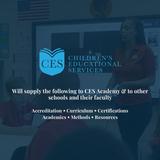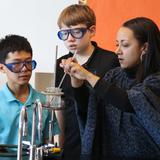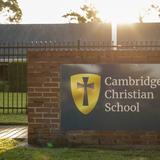Lee Academy has patterned its approach to education after Dr.
Barbara Clark's Integrative Education Model. We incorporated key components of that model in the development of our program.
We strive to give equal importance to four human functions - thinking/cognitive, feeling/emotional, physical/sensing and the intuitive.
These functions cannot reach their optimum levels separately, but only when each is integrated into the whole.
This 'holistic' view reflects thinkers from the past and current researchers, who have found evidence of the interactive nature of reality.
Our philosophy is based upon creating a responsive learning environment, relaxation and tension reduction, movement, empowering language, choice and perceived control, complex and challenging cognitive activity, intuition and integration and conclusion.
Quick Stats (2025)
- School Type: School with Special Program Emphasis
- Grades: Kindergarten-12
- Enrollment: 59 students
- Average class size: 8 students
- Application Deadline: None / Rolling
- Source: Verified school update
School Overview
School Type
School Membership(s)School Assoc.
Religious Affiliation
Grades Offered
Grades Kindergarten-12
Year Founded
1983
School Calendar
Student Body
Total Students
59 students
Student Body Type
Co-ed
% Students of Color
34%
State avg.: 47%
Students by Grade

Academics and Faculty
Total Classroom Teachers
12 teachers
Student : Teacher Ratio
5:1
National avg.:
Average Class Size
8 students
Tuition and Acceptance Rate
Admission Deadline
None / Rolling
Tuition Notes
$600.00 (one-time registration fee)
Application URL
Source: Verified school update
Frequently Asked Questions
When is the application deadline for Lee Academy For Gifted Education?
The application deadline for Lee Academy For Gifted Education is rolling (applications are reviewed as they are received year-round).
School Reviews
Endorse Lee Academy For Gifted Education. Endorsements should be a few sentences in length. Please include any comments on:
- Quality of academic programs, teachers, and facilities
- Availability of music, art, sports and other extracurricular activities
- Academic or athletic awards
Recent Articles

June 09, 2025
Is It Easier to Land a 17łÔąĎ Job When You're Already Employed?Is it easier to land a private school job when you're already employed? This article breaks down employer biases, networking advantages, and negotiation leverage—plus the latest hiring trends in independent schools. If you’re considering a move, here’s how to maximize your position.

June 09, 2025
How to Secure a 17łÔąĎ Job When You're Unemployed Without the StigmaFinding a private school job while unemployed can be tough, but it doesn't have to hold you back. This article breaks down networking strategies, ways to stand out, and smart approaches to keep your confidence strong. Learn how to turn setbacks into strengths and secure the right opportunity—without the stigma.

June 09, 2025
The 17łÔąĎ Job Hunt: Insider Tips for Employed & Unemployed EducatorsNavigating the private school job market? Whether you're employed or unemployed, the right strategy can make all the difference. This article breaks down essential steps to keep your resume sharp, expand your network, and stay visible in the education community. Learn insider tips to position yourself for success in private schools.










